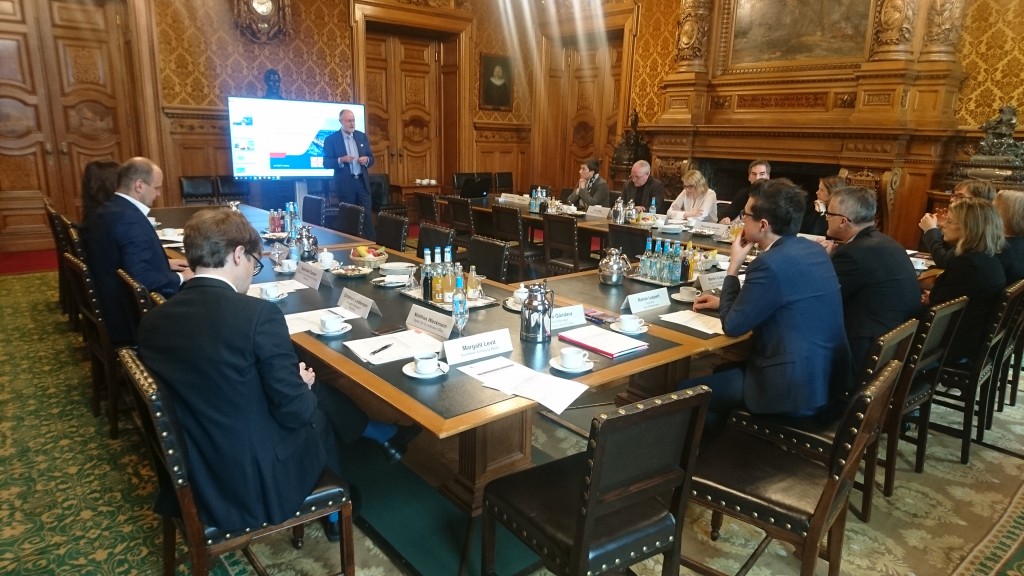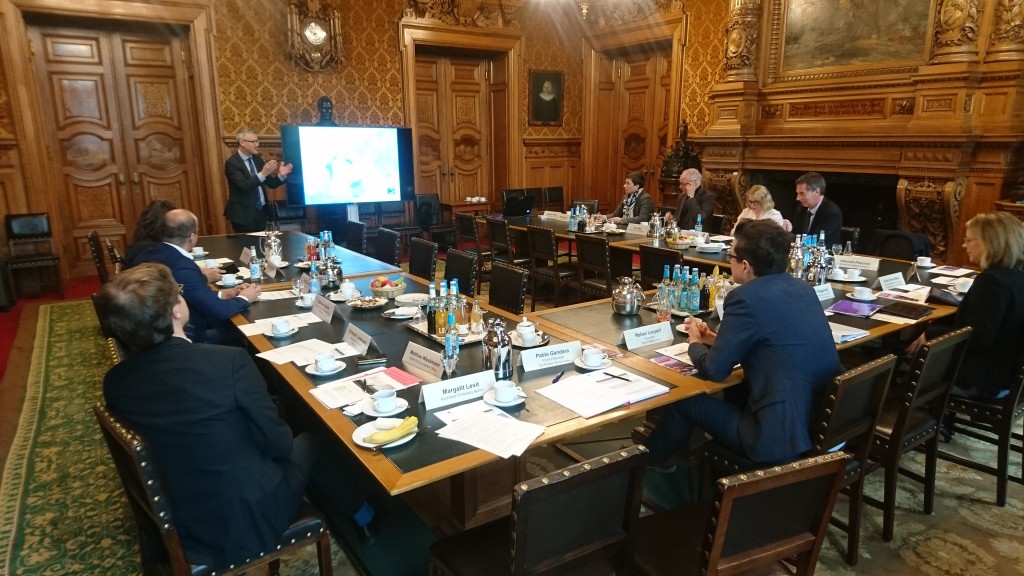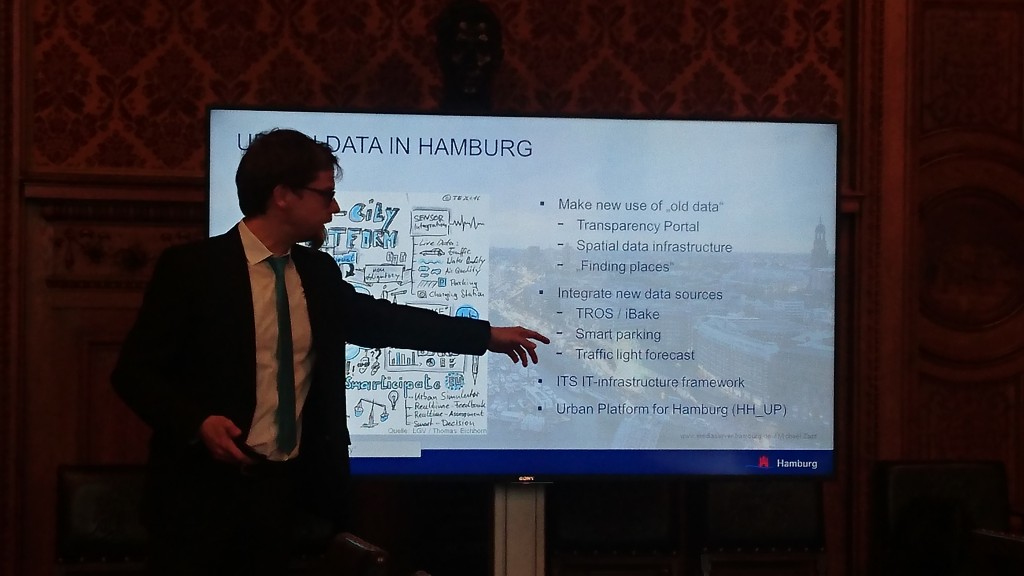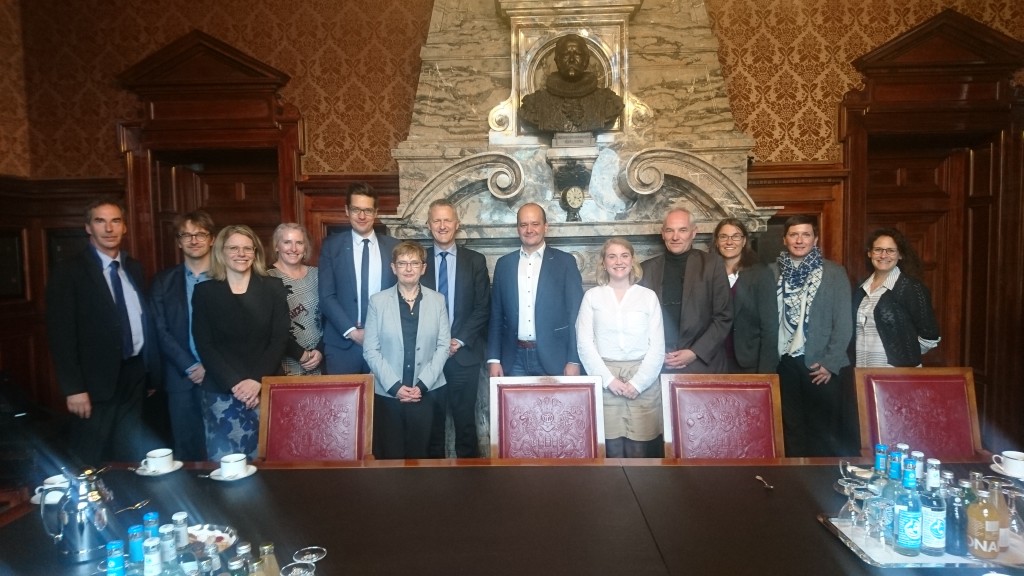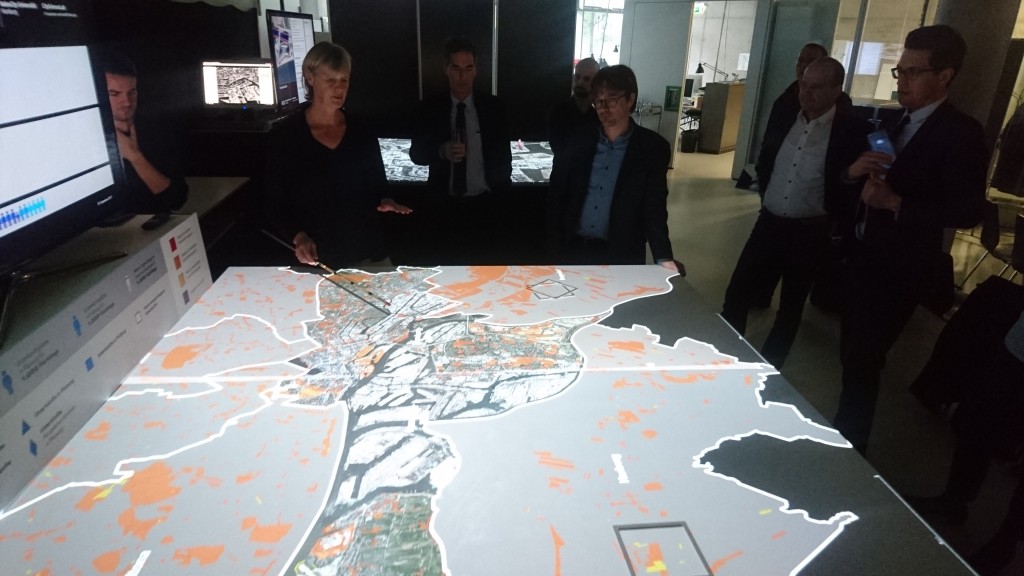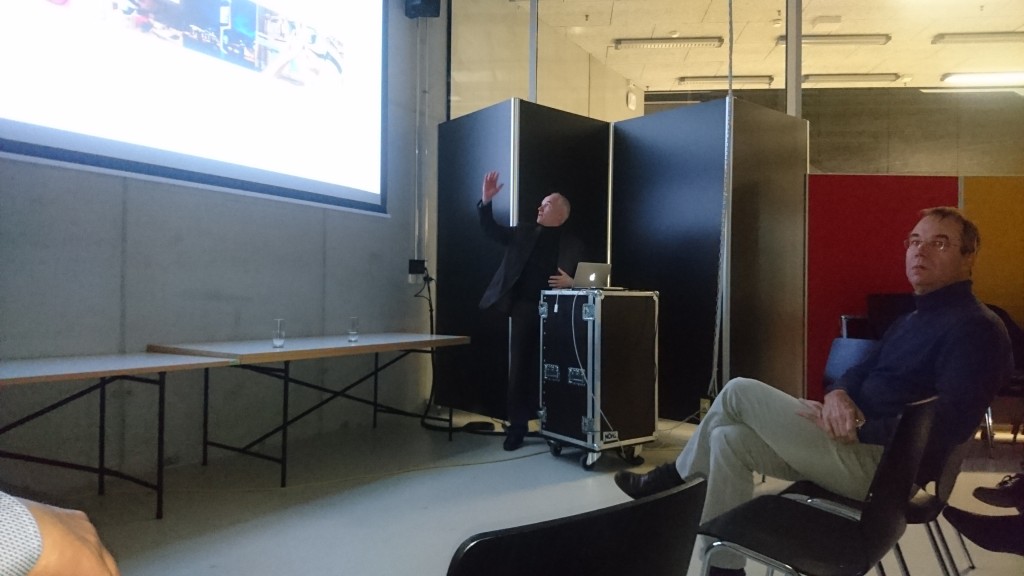The follow-up visit of Melbourne delegates in Hamburg took place from 09-11 October 2017. The delegation of Melbourne was composed of:
- Martin Cutter, Director City Operations, City of Melbourne: Martin is one of the City of Melbourne’s most experienced Directors, responsible for the Resilient Melbourne, Planning & Building, Property, On-Street Compliance, Engineering Services, and Parks and Waterways branches. Martin also brings relevant and extensive experience as the prior Director of City Economy and Activation (including brand, marketing and economic development), and Director of Finance, at the City of Melbourne.
- Councillor Rohan Leppert, City of Melbourne: Councillor Leppert was elected to Council in 2012 and is Chair of the Arts, Culture and Heritage Portfolio, and Deputy Chair of the Planning Portfolio and Knowledge Portfolio. Councillor Leppert is also a Board member of the Municipal Association of Victoria and chairs its Planning Committee.
- Claire Ferres Miles, General Manager Place Strategy & Development, City of Port Phillip: Claire is responsible for the Strategy and Growth, Place and Design, City Development and Sustainability and Transport departments at the City of Port Phillip, which is one of the largest local government entities based in inner Melbourne.
- Michelle Fitzgerald, Chief Digital Officer and Smart City Office Manager, City of Melbourne: Michelle is responsible for the Smart City Office branch, which includes the CityLab, Open Data, Geographic Information Systems (GIS), City Research, Strategy and Knowledge teams. Michelle participated in the first phase of this program in Melbourne earlier this year.
Meetings in Hamburg started at the City Hall with a key note by Uwe Ram, Head of Department for International Cooperation. Mr Ram introduced the team in charge of the cooperation with Melbourne:
- Thomas Jacob, City of Hamburg, Senate Chancellery, Head of International Project
- Hannah Peschel, City of Hamburg, Senate Chancellery, Project Manager Smart Cities & Circular Economy
- Thomas Eichhorn, City of Hamburg, State Agency of Geoinformation & Survey, Head of Division Spatial Competence Center
- Nicole Schubbe, City of Hamburg, State Agency of Geoinformation & Survey, Smart City Projects
- Prof. Dr. Jens Bley, HafenCity University Hamburg (HCU), eCultureLab, Director eCulture
- Laura Frick (International Relations)
- Matthias Wickman, City of Hamburg, DCCO Digital City Co-ordination office
- Christoph Lindemann, Borough of Bergedorf, Hamburg
After an introduction by Uwe Ram and Laura Frick on Hamburg’s key urban development features, Mathias Wieckmann introduced the Hamburg’s Digital City Strategy. Martin Cutter introduced the main challenges of Melbourne and explained the possible cooperation areas. This was complemented by Thomas Jacob (Hamburg). Nicole Schubbe, delivered a presentation on Hamburg’s Smarticipate project. Also the projects MySmartLife and MONICA were introduced by Christoph Lindemann, Hannah Peschel and Sabine Hilfert (Senate chancellery).
Discussions centered on “Smart Cities” (exchange of experience in both cities and future connecting factors) as well as on the implementation of smart processes in Governance (similar challenges, possible solutions).
Field visits were undertaken to the CityScienceLab, where Prof. Dr . Jens Bley and Prof. Dr. Gesa Ziemer introduced the main features of the lab, a joint venture between the Massachusetts Institute of Technology and the HafenCity University. Melbourne colleagues were able to use interactive urban planning methods, with the case study “finding places for refugee dwellings in Hamburg”. Ms Ziemer explained the citizens participation process that started 2016 and is still ongoing. Prof Bley also introduced the Smart Square project, a best practice for urban revitalization through cultural heritage and public space branding through ICT.
Further meetings included the Ministry of Urban Development and Housing (BSW), where Rouven Wagner and Astrid Köhler explained the urban planning approach in Hamburg and the tools for citizens’ participation. The Melbourne delegates also visited the 3D CityModel at the Ministry of Urban Development and Housing and Ministry of Environment and Energy. A field visit was also undertaken to the IBA (Hamburg’s urban development company) and their projects (Energieberg and Energiebunker).
ACTIONS
Actions agreed between the Cities of Hamburg and Melbourne to commence in late 2017 and continue until phase 3 (Hamburg delegation’s visit to Melbourne) in March 2018:
Objectives: to continue knowledge exchange and collaboration between the Cities of Melbourne and Hamburg with a focus on two key action areas that bring together data, digital tools and community engagement to solve city problems:
1. Community engagement via digital and data tools to co-design urban renewal areas: consider trialling selected, relevant tools from Hamburg in Melbourne such as My SmartLife, City ScienceLab, Urban Labs, Citizen Cockpits, Smart Square to address community priorities and enhance citizen participation in city planning and development, e.g. For Melbourne Innovation Districts, Arden-Macaulay district
2. Sound and security management using IOT at major events: consider trailing MONICA (Management of Networked IOT Wearable) at selected City of Melbourne events to address sound and security issues, e.g. New Years’ Eve, Moomba
Via:
– Staff and academic exchanges to provide in-person learnings and coaching support
– Knowledge sharing via remote mechanisms, e.g. Skype for Business, document exchange, GIThub
Impressions
Welcoming word by Uwe Ram, Hamburg
Presentation by Martin Cutter, Melbourne
Smart City presentation by Mathias Wieckmann, Hamburg
Group picture with Deputy Major Mrs Elke Badde
CityScienceLab, Prof. Dr. Gesa Ziemer
CityScienceLab, Prof. Dr . Jens Bley


